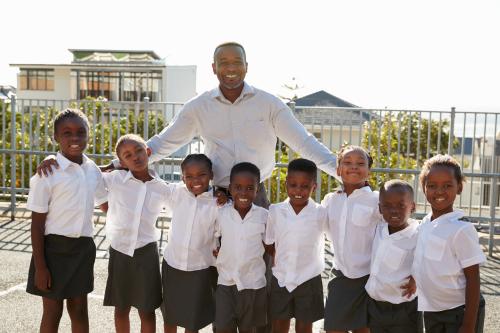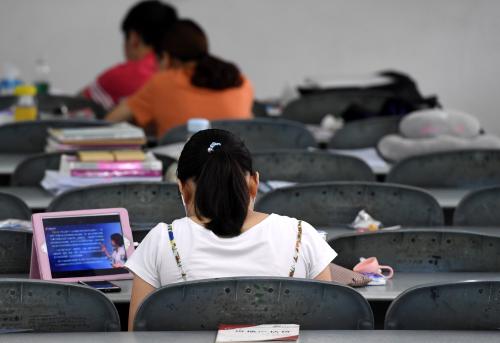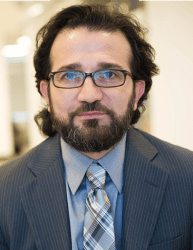Over the past decade, it has become evident that although more children are gaining access to schooling, there needs to be improvement in learning outcomes. The recent Progress in International Reading Literacy Study (PIRLS) highlighted a decline in reading proficiency in 28 out of the 45 participating countries between 2016 and 2021. The current model of schooling is not meeting the needs of a significant portion of the world’s population and is extraordinarily vulnerable to catastrophic events such as the COVID-19 pandemic. We need to transform our educational systems in robust, rapid, and nonlinear ways. We know that the most effective way to achieve our goals for quality, inclusive, equitable, and relevant education for all is by changing teachers’ beliefs and classroom practices, commonly called pedagogy. However, research has repeatedly shown that most teacher education interventions have limited or no impact on changing classroom practice.
There is a gap among research, program design, and implementation of teaching and learning practices, especially in low- and middle-income contexts. The research on improving teaching and learning often lacks a focus on real-world challenges of practice. Programs based on this type of research are often not nuanced for the individual contexts and therefore do not result in a sustained change in classroom practice.
During the education system transformation symposium, the Center for Universal Education launched the Strengthening Pedagogical Approaches for Relevant Knowledge and Skills (SPARKS) project. This initiative aims to create a network of policymakers, educators, donors, civil society actors, and other education decisionmakers dedicated to discussing and researching the role of pedagogies in transforming education systems. During the symposium, a roundtable involving over 50 participants discussed the role, definition, and how innovative pedagogies can contribute to systems transformation. Insights from the roundtable discussion and subsequent conversations with experts have highlighted four key themes that will inform our focus on the role of pedagogies in education system transformation as we delve into this work in the coming years.
Pedagogy is a complex and multidimensional concept; we must think of it holistically.
Pedagogy is commonly defined as the science and art of teaching. Educational literature describes different pedagogical approaches, such as teacher-centered (often called traditional), learner-centered, liberative, constructivist, contemplative, Montessori, indigenous, and innovative. These various approaches highlight the complexity and multidimensionality of pedagogy. Each of these includes observable elements of classroom practice, such as how to interact with students, the curriculum, assessment strategies, and underlying theories and ideologies about teaching and learning that are not readily observable. When exploring pedagogy, it is essential to work toward shared goals and contextualized definitions by acknowledging the multidimensionality of the concept and discussing the observable and non-observable factors influencing the teaching and learning process.
Pedagogy is a moral, ethical, cultural, political, and technical activity. Shifting classroom practice requires acknowledging and addressing all these factors.
Global education reform efforts have often aimed to shift traditional teacher-centered pedagogies to more learner-centered pedagogies to enhance classroom learning. These reform efforts have primarily addressed technical delivery problems, such as a need for more training and resources. Despite considerable investments in workshops, seminars, and teacher training programs to promote pedagogical shifts, classroom practice has remained the same. Emphasizing greater technical knowledge and resources is a necessary but insufficient mechanism for changing classroom practice. Transforming teaching practices, scaling specific initiatives, and transforming systems are deeply intertwined with the overall ecosystem’s political, cultural, institutional, and social factors. Focusing only on the technical aspects of classroom practice assumes that pedagogy is a value-free activity. However, it is well established that a teacher’s classroom practice is shaped by the broader policies, values, histories, and worldviews that comprise their larger educational ecosystems. Any discussion about pedagogical change must address the underlying purposes of education, the values and policies, and the broader institutional and social processes that govern teaching and learning in each context.
Efforts to change teaching and learning should not solely focus on teachers; we must consider all the actors in the educational ecosystem.
The gap among theories of learning, classroom practices, and many large-scale teacher professional development efforts is partly due to an assumption that teachers are the only actors responsible for shifting pedagogical approaches. However, teaching and learning are not constrained to the four walls of the formal school. The teaching and learning process involves multiple actors, institutions, and spaces. Expecting a pedagogical change in the classroom by demanding teachers to change their practice without creating an enabling and supportive environment is misguided and unfair to teachers.
Bringing positive changes in classroom practice requires creating a supportive ecosystem that enables teachers, parents, policymakers, and other stakeholders to discuss their problems and potential solutions and develop policies and institutional norms to bridge the divide among home, school, and their greater society. Changing the teaching and learning process requires expanding our definition of educators to include parents, mentors, community leaders, and peers and widening the profile of learning environments beyond schools to include formal, non-formal, and informal learning environments.
Pedagogical changes require open and honest dialogue, acknowledgment of contextual differences, and collaborative research.
International policymakers, donors, and program designers often need more cultural and contextual understanding while national-level policymakers need help finding relevant evidence for their contexts from teacher development research and the learning sciences on how children learn best. To facilitate meaningful and lasting change in learning and teaching, it is necessary to create space within the education ecosystem to discuss the interplay among technical interventions, the theoretical underpinning of various pedagogical approaches, and what those mean for system transformation within specific cultural, socio-economic, and political contexts.
These four key insights have guided the creation of the SPARKS project, a new initiative by the Brookings Institution. This project aims to produce practical and collaborative learning resources that tackle important questions about the impact of pedagogy on transforming education systems. It will do so by establishing an international peer-learning network and forging partnerships among researchers, policymakers, educators, civil society, and other education actors. We are enthusiastic about this endeavor and encourage you to stay tuned for updates on our next steps. If you are interested in joining our peer-learning network or participating in our research-policy-practice partnerships, please don’t hesitate to reach out to us.






Commentary
Research on improving teaching and learning often lacks a holistic focus—a new collaborative research project hopes to change this
June 16, 2023